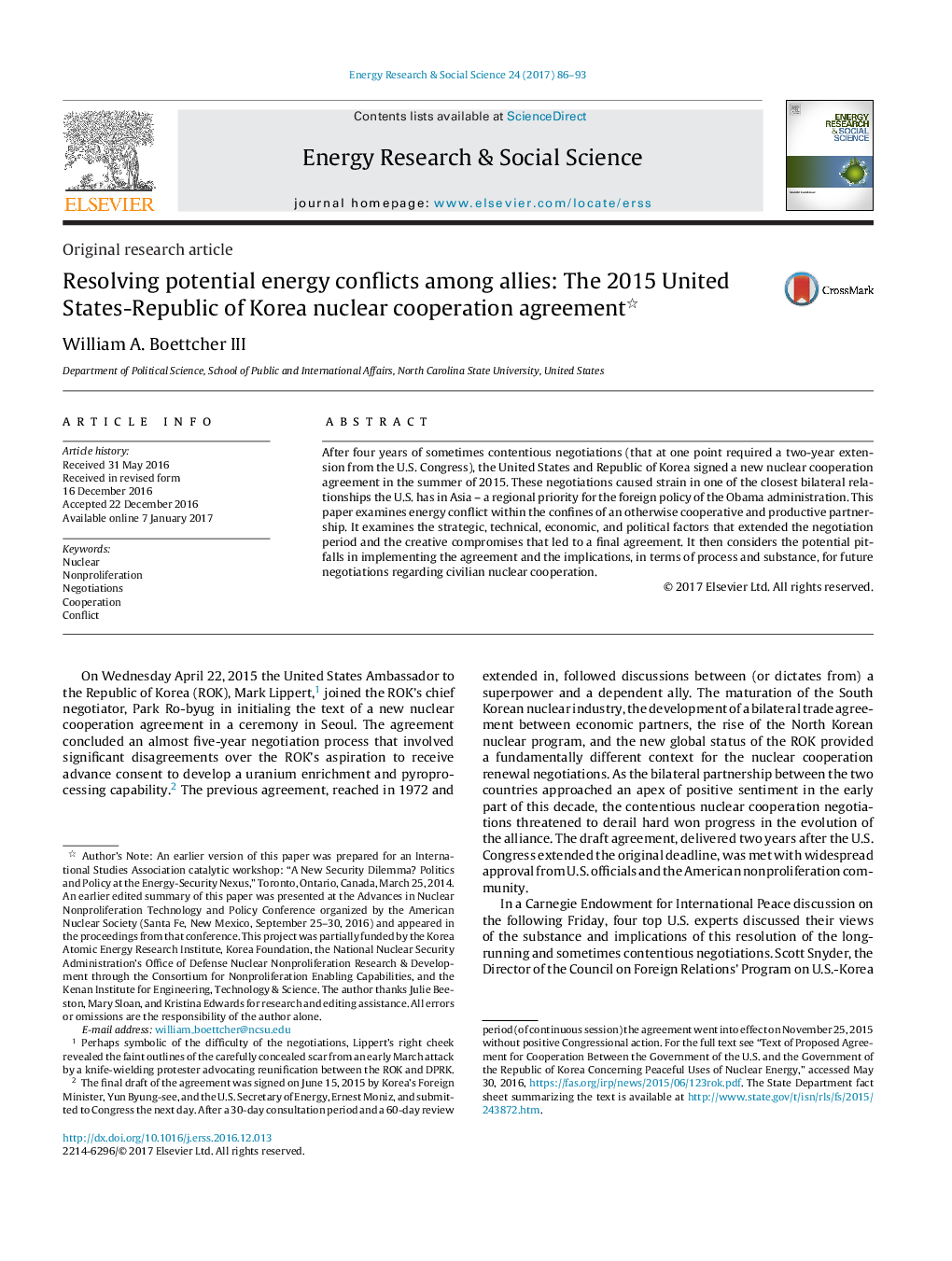| Article ID | Journal | Published Year | Pages | File Type |
|---|---|---|---|---|
| 6463920 | Energy Research & Social Science | 2017 | 8 Pages |
After four years of sometimes contentious negotiations (that at one point required a two-year extension from the U.S. Congress), the United States and Republic of Korea signed a new nuclear cooperation agreement in the summer of 2015. These negotiations caused strain in one of the closest bilateral relationships the U.S. has in Asia - a regional priority for the foreign policy of the Obama administration. This paper examines energy conflict within the confines of an otherwise cooperative and productive partnership. It examines the strategic, technical, economic, and political factors that extended the negotiation period and the creative compromises that led to a final agreement. It then considers the potential pitfalls in implementing the agreement and the implications, in terms of process and substance, for future negotiations regarding civilian nuclear cooperation.
